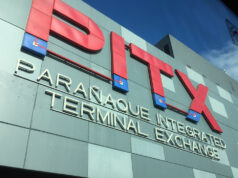Virus drags FDI inflows in February

By Luz Wendy T. Noble, Reporter
FOREIGN DIRECT investment (FDI) inflows slumped by a third in February, as the uncertainty over the then-emerging coronavirus outbreak started spooking investors.
Data from the Bangko Sentral ng Pilipinas (BSP) showed FDI inflows declined by 31.5% to $505 million from a year ago. It also dropped by 23.13% from January.
Year to date, inflows slipped by 12.2% to $1.162 billion from a year earlier.
The inflows were the lowest since the $430 million recorded in August.
“FDI declined as uncertainties on the impact of the COVID-19 (coronavirus disease 2019) outbreak dampened investor sentiment,” the BSP said in a statement on Friday.
The Philippines had only three confirmed cases of coronavirus in February, all Chinese nationals.
BSP data showed net investments in debt instruments, which include intercompany borrowings, dropped by 26.4% to $317 million from a year earlier.
Reinvested earnings also decreased by 26.4% year on year to $59 million.
Equity other than reinvestment of earnings plunged by 43% to $129 million from a year ago. This, as placements fell by 45.2% to $145 million and withdrawals slid by 58% to $16 million.
The central bank identified Singapore, Japan and the United States as top sources for equity capital placements during the month. These flows went mainly into manufacturing, real estate, and wholesale and retail industries.
Inflows funneled into equity and investment fund shares likewise declined by 31.5% to $188 million from a year earlier.
Although there were no cases of local transmission of COVID-19 in the country at that time, investors were already concerned about the rising number of cases in other countries.
“Travel restrictions were already being implemented by many countries then. The hospitality sector was already badly affected,” Alvin P. Ang, an economist from Ateneo de Manila University, said in a text message.
Investor sentiment may have also been hurt by the Senate investigation of Philippine offshore gaming operators during the month, he added.
In the first two months of 2020, net investments in debt instruments plummeted by 44.1% to $550 million from a year ago. Reinvested earnings slipped by 16% to $131 million.
On the other hand, equity other than reinvestment of earnings for the two months surged by 162% to $481 from the same period last year.
Meanwhile, equity and investment fund shares fell by 12.2% to $1.162 billion from a year ago.
The central bank in November projected FDI inflows worth $8.8 billion this year, from $7.647 billion last year.
Ateneo’s Mr. Ang said inflows in the coming months will likely go further down as the economic impact of the pandemic widens.
“The February data is already superseded by falling trade and the lockdown in March,” he said.
UnionBank of the Philippines, Inc. Chief Economist Ruben Carlo O. Asuncion said May and June may see a slight recovery as the economy gradually reopens.
In an e-mail, Mr. Asuncion said FDI inflows will likely follow developments related to the vaccine, while consumers will seek transparency from the government regarding efforts against the virus.
“The emergence of new low-touch and/or contactless types of businesses may offer some hope for investors, even as existing global firms struggle to survive in the new way of doing things post-pandemic,” he said.
Meanwhile, Fitch Solutions said investor sentiment on the Philippine market was already affected by other factors before the health crisis.
“Indeed, the outbreak will aggravate the already notable structural barriers that deter investment into the Philippines, namely logistics and an uncertain policy backdrop, weakening the longer-term outlook for both growth and the country’s exporting capabilities,” it said in a note sent to reporters.
Fitch Solutions cited the lack of infrastructure and connectivity in global supply chains that has hampered the Philippines’ ability to attract investments.
“There has been a failure to move forward with the second package of tax reforms, which plans to lower the country’s corporate income tax rate from a regionally high level of 30%, to 20% by 2029 in line with Taiwan and Vietnam. Without reforms and an ability to address the barriers to FDI, the Philippines economy may grow at a slower pace long term,” Fitch Solutions said.
Congress has not yet passed the proposed Corporate Recovery and Tax Incentives for Enterprises Act, which will immediately reduce corporate income tax to 25%.



